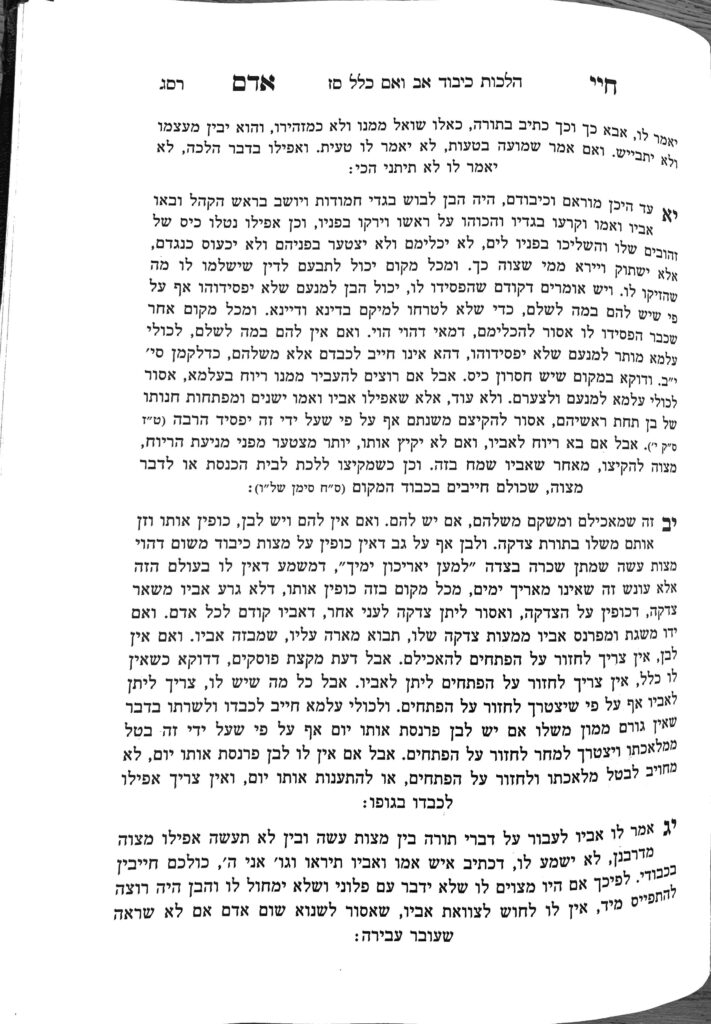We are continuing in siman 12, regarding children providing financial support to their parents. We learned that If the child has absolutely no money, he is not chayav to knock on doors in an effort to collect for his parents. However, if the child has enough to support himself but not enough to share with his parents, he must nevertheless share it, and if it is necessary in the future, collect from others.
The Chayei Adam writes that regarding a child’s chiyuvim of acts of service to their parents (i.e., kibud; known as being mechabeid begufo), if a child does not have enough money to survive for that day unless they work, they are not chayav to take the day off in order to provide kibud toward their parents
We will translate these rules into contemporary life. A person is generally not paid by the day, but through a weekly or monthly salary. A salaried worker who takes time off from work is akin to a day laborer taking off the day, in that if their job will be in peril due to their absence, they would not be chayav to take the time off from work. Although the work is done over multiple days or weeks, the payment is for the complete unit of work, be it an entire week, month, year or contract.
We see from the Chayei Adam, based on Chazal, the extent to which we take the chiyuv kibud av v’eim. Although we pasken that financial responsibility is mishel av (upon the parents, and not upon the children), we see that there are many times that a child must take some level of financial responsibility.
The story is told about one of the rabbonim of the Brisker dynasty that a father asked his child to come visit. The child was happy to come, but asked his father to pay for the train ticket. The father said no, so the child responded that since we pasken that kibud av v’eim is mishel av, the child is not chayav to pay for the train ticket and therefore patur from coming. The child asked the Brisker Rav (some versions of the story say that is was Reb Chaim) if he was chayav, and the Rav responded that although it is correct that the child does not have to take financial responsibility for chiyuvim of kibud av v’eim, he is not patur from going–he could walk. The fact that he decided to take a train is for the child’s own comfort, and therefore the father is not chayav to pay for the ticket.
Summary
- The chiyuv kibud av v’eim is limited to acts of service and does not include financial support. However, a child who has the means may be chayav to support his parents by dint of the mitzvah of tzedakah, and their parents would take precedence over any other tzedakah matter..
- If the child is wealthy enough that they do not need to use tzedakah money, they may not do so, and must support their parents from their regular income. If they nonetheless use tzedakah money, Chazal place a curse upon the child.
- If the child has absolutely no money, he is not chayav to knock on doors in an effort to collect for his parents.
- However, if the child has enough to support himself but not to share with his parents, he must nevertheless share it, and if it is necessary in the future, collect from others.
- Regarding acts of service, if the child will lose their job by taking off from work to be mechabeid their parents, they are not chayav to take off from work.



